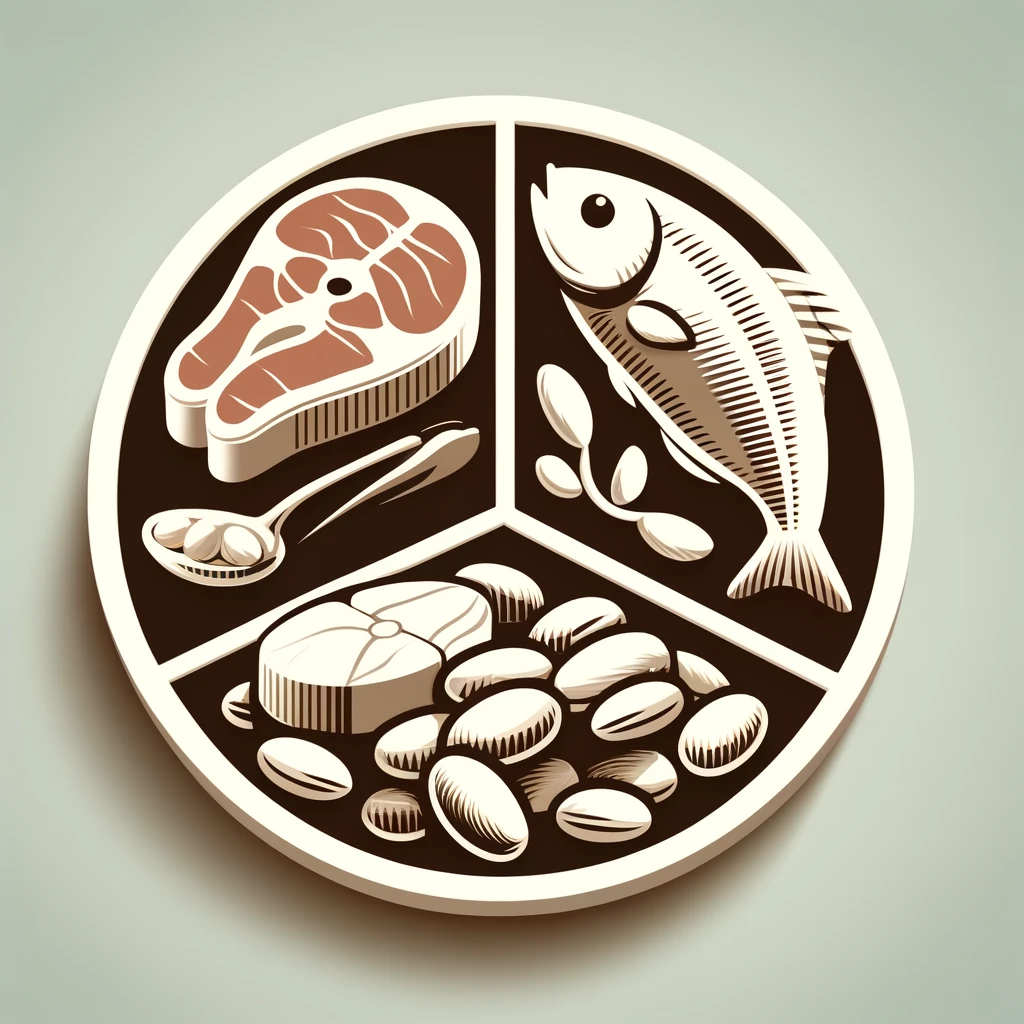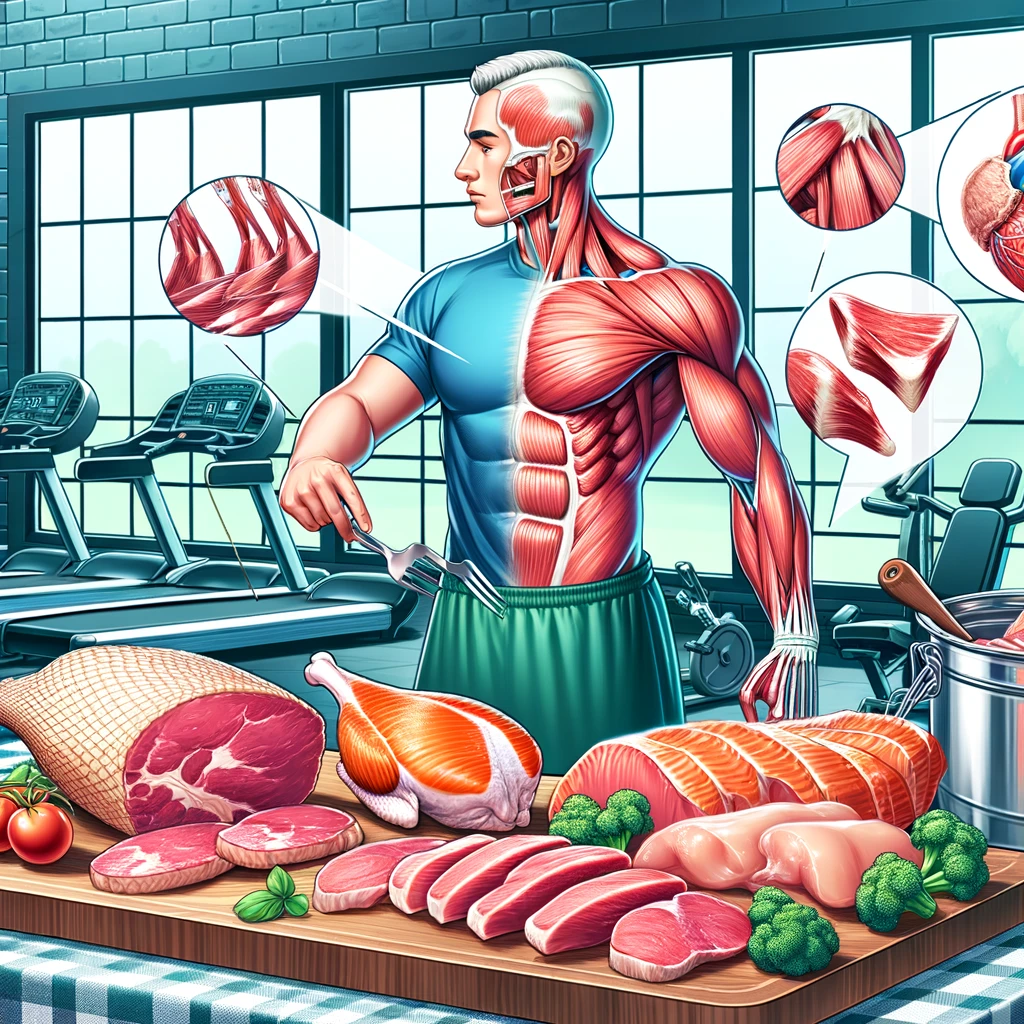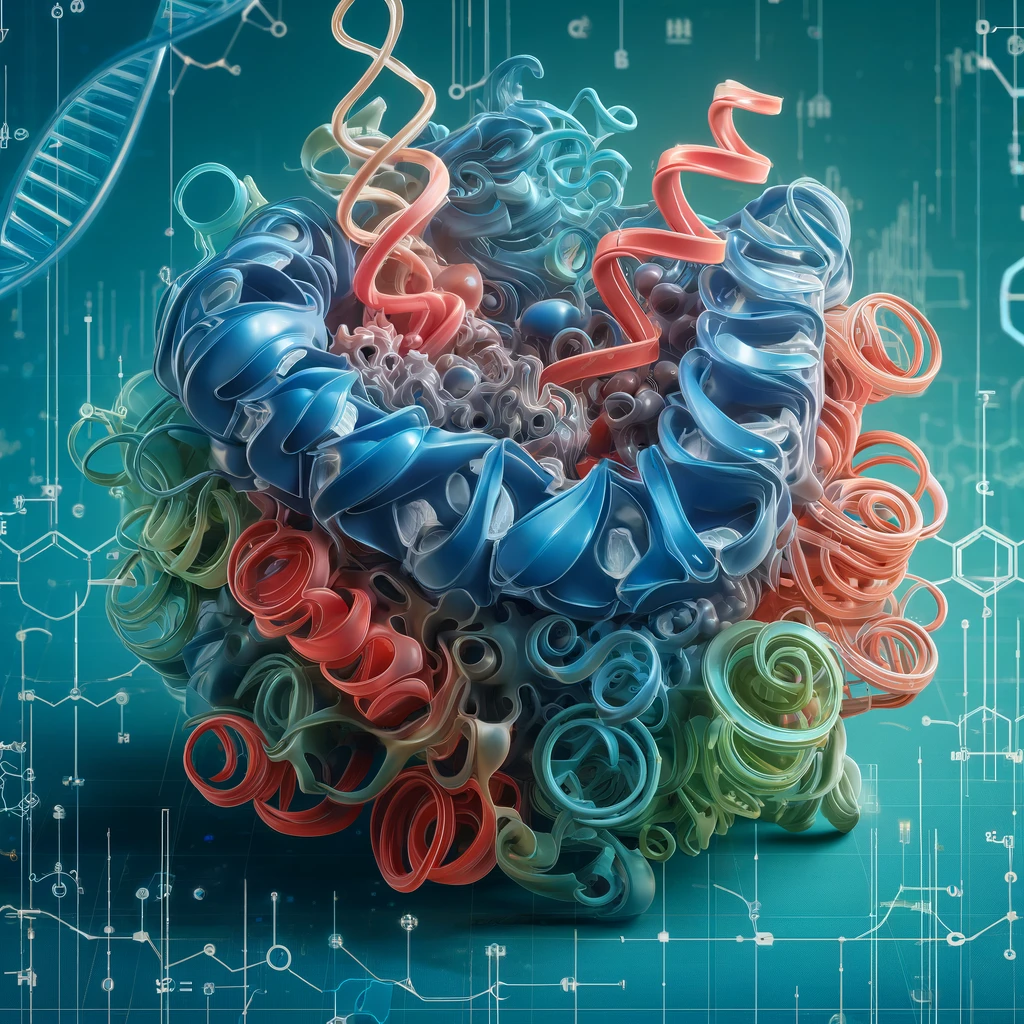Protein
Definition
Protein is a large molecule composed of one or more chains of amino acids in a specific order, required for the structure, function, and regulation of an organism's cells, tissues, and organs.
Parts of Speech
- Noun
Pronunciation
American English
- IPA Pronunciation: /ˈproʊtiːn/
- Respelling: PROH-teen (with "PROH" as in "pro" and "teen" as in "teenager")
British English
- IPA Pronunciation: /ˈprəʊtiːn/
- Respelling: PROH-teen (with "PROH" as in "pro" and "teen" as in "teenager")
In both dialects, the stress is on the first syllable, "PROH," with a clear pronunciation of the "teen" at the end. The primary difference lies in the vowel sound of the first syllable, with a more rounded "o" sound in British English.
Etymology
The term "protein" is derived from the Greek word "proteios", meaning "primary" or "holding the first place". The term was introduced in the early 19th century by Jöns Jakob Berzelius, a Swedish chemist, to describe these substances of seemingly primary importance to the organism.
Derivatives
- Proteome
- Proteomics
- Proteinaceous
- Proteolysis
- Protease
Synonyms
- Polypeptide
- Amino acid chain
- Macromolecule
Antonyms
- None (Specific terms, especially those related to scientific concepts, often don't have direct antonyms.)
Usage
"Protein" is predominantly used in biological, nutritional, and medical contexts to describe the essential molecules that play critical roles in bodily processes.
Related Terms
- Enzyme
- Amino acid
- Protein synthesis
- Protein structure
Detailed Definition
Noun
- A complex organic compound made up of amino acids linked by peptide bonds, constituting a primary component in the diets of humans and animals, and necessary for the growth and repair of tissues.
- Example: Meat, fish, and legumes are excellent sources of protein.
- Any of a class of nitrogenous organic compounds which have large molecules composed of one or more long chains of amino acids and are essential for all living organisms, especially as the building blocks of body tissue.
- Example: The structure of a protein is vital to its function in the cell.
- In biochemistry, a molecule consisting of polypeptides folded into a functional three-dimensional shape.
- Example: The hemoglobin protein is responsible for transporting oxygen in the blood.
protein



🇨🇳 Mandarin
- 蛋白质 (protein in the nutritional context)
- IPA Pronunciation: /dàn bái zhì/
- Respelling in English: dan bai zhi
🇮🇳 Hindi
- प्रोटीन (direct transliteration for protein)
- IPA Pronunciation: /proʈiːn/
- Respelling in English: proteen
🇪🇸 Spanish
- Proteína (protein)
- IPA Pronunciation: /pro.teˈi.na/
- Respelling in English: proteina
🇫🇷 French
- Protéine (protein)
- IPA Pronunciation: /pʁo.te.in/
- Respelling in English: proteine
🇸🇦 Modern Standard Arabic
- بروتين (direct transliteration for protein)
- IPA Pronunciation: /proˈtein/
- Respelling in English: protein
🇧🇩 Bengali
- প্রোটিন (direct transliteration for protein)
- IPA Pronunciation: /proʈin/
- Respelling in English: protein
🇷🇺 Russian
- Белок (protein, especially in the biological context)
- IPA Pronunciation: /bʲɪˈlok/
- Respelling in English: belok
- Протеин (direct transliteration for protein, often used in the context of nutrition and fitness)
- IPA Pronunciation: /prɐˈtʲein/
- Respelling in English: protein
🇵🇹 Portuguese
- Proteína (protein)
- IPA Pronunciation: /pɾo.teˈi.na/
- Respelling in English: proteina
🇮🇩 Indonesian
- Protein (direct transliteration for protein)
- IPA Pronunciation: /pro.te.in/
- Respelling in English: protein
🇩🇪 German
- Protein (protein)
- IPA Pronunciation: /proˈteːɪn/
- Respelling in English: protein
- Eiweiß (literally "egg white", commonly used to refer to protein in a nutritional context)
- IPA Pronunciation: /ˈaɪ̯vaɪ̯s/
- Respelling in English: eiweiss
🇯🇵 Japanese
- タンパク質 (protein)
- IPA Pronunciation: /tan.paku.shitsu/
- Respelling in English: tanpakushitsu
🇻🇳 Vietnamese
- Protein (direct transliteration for protein)
- IPA Pronunciation: /proˈtein/
- Respelling in English: protein
🇰🇷 Korean
- 단백질 (protein)
- IPA Pronunciation: /dan.baek.jil/
- Respelling in English: danbaekjil
🇹🇷 Turkish
- Protein (direct transliteration for protein)
- IPA Pronunciation: /pro.teˈin/
- Respelling in English: protein
🇵🇰 Urdu
- پروٹین (direct transliteration for protein)
- IPA Pronunciation: /pro.teɪn/
- Respelling in English: protein





